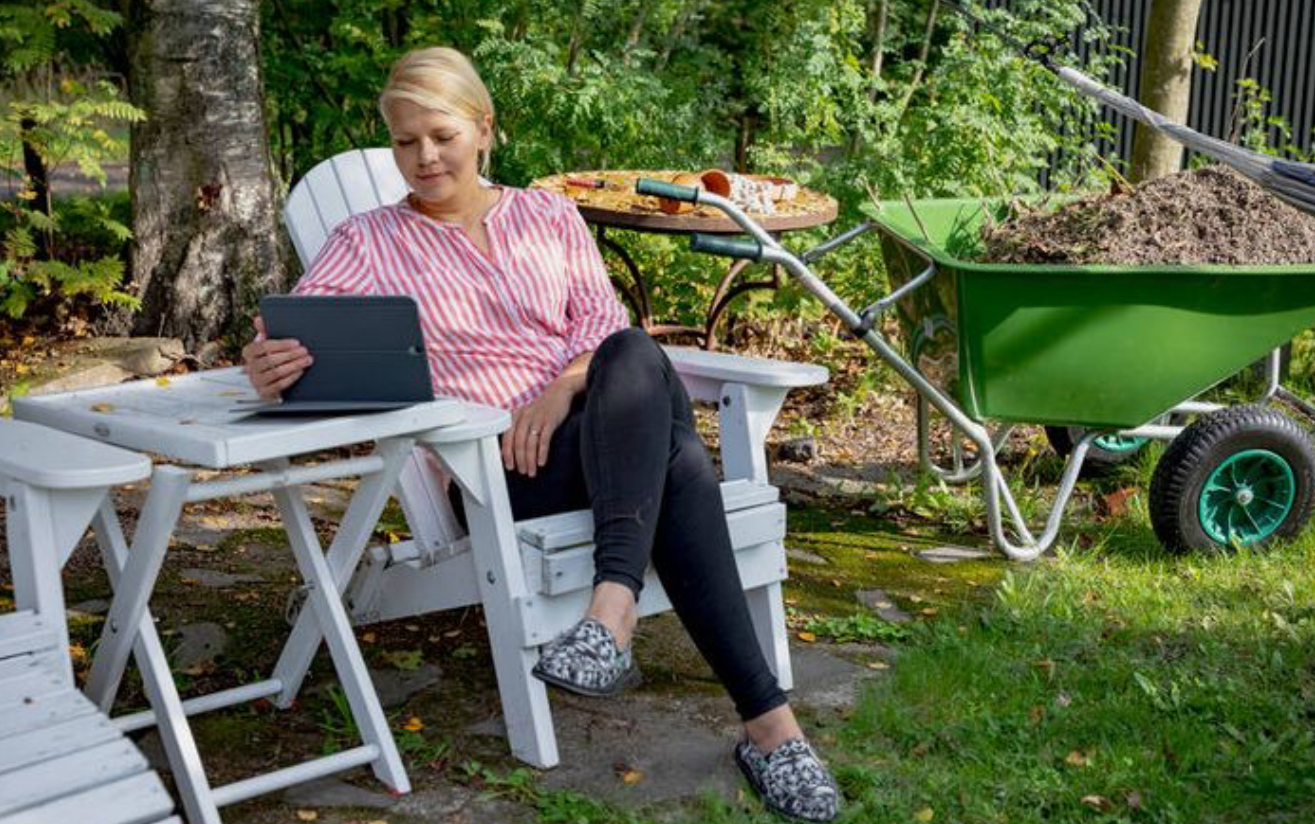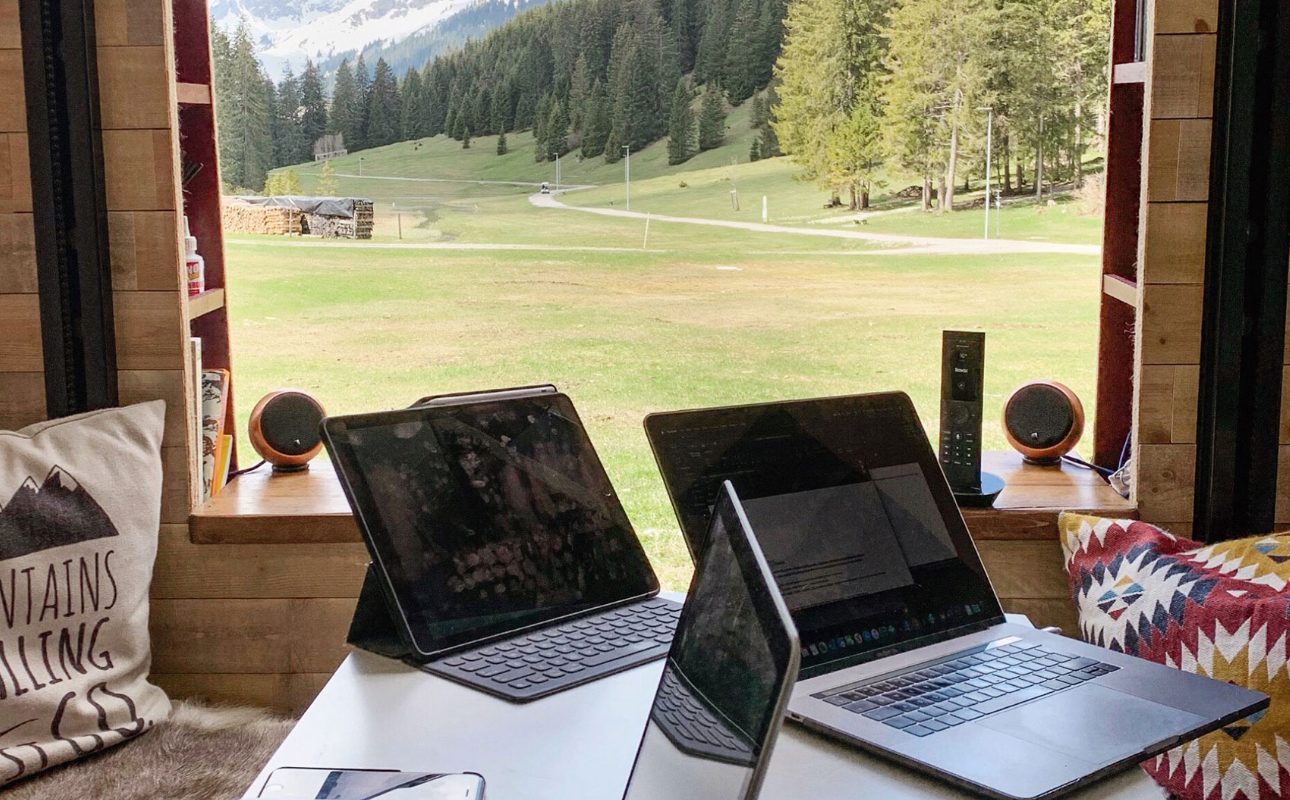The transformation of caravans and cabins into workspaces and offices is a trend that has gained considerable momentum in recent years, propelled by the evolving dynamics of the modern workplace and an increasing desire for work-life balance.
This shift towards remote work has broadened the concept of the workplace beyond traditional office spaces, with many individuals seeking refuge in the serenity and inspiration offered by natural or personalized environments.
Caravans and cabins, once primarily seen as holiday or leisure retreats, are now being repurposed into havens of productivity, offering a unique blend of comfort, tranquility, and detachment from the hustle of city life.
However, this idyllic work setting comes with its own set of challenges, the most significant being the need for reliable internet connectivity. In today’s digital age, the internet is the lifeline of professional work. You can check out this link if you want to learn more https://www.newtimes.co.rw/article/183698/News/off-grid-solutions-could-provide-hundreds–of-millions-with-internet-access.
It facilitates key functions such as real-time communication with colleagues and clients through video conferencing, seamless access to online resources, cloud computing, and the use of various work-related applications and software.
For freelancers, digital nomads, and remote workers, uninterrupted internet access is crucial for meeting deadlines, maintaining workflow continuity, and ensuring effective collaboration.
The dependency on the internet for professional work is further accentuated by the growing trend of online businesses and e-commerce. Entrepreneurs operating from their remote cabins or caravans require consistent internet connectivity to manage their online platforms, interact with customers, and handle digital transactions.
Moreover, the increasing emphasis on online marketing and social media presence for business growth necessitates a stable internet connection for content creation, online networking, and digital advertising.
Additionally, the internet is indispensable for staying updated with the latest industry trends, participating in webinars and online workshops, and pursuing online courses for professional development. For those whose work involves research, data analysis, and extensive online reading, a robust internet connection is not just a tool but a necessity for efficiency and success.
The importance of a stable internet connection in these unconventional workspaces is also highlighted by the need for emergency response and connectivity in isolated locations.
Being able to quickly reach out for assistance or receive urgent communication can be critical, especially in remote cabins or when on the move in caravans. Don’t sweat it because below we’ll provide detailed tips on how to secure a reliable internet connection in a cabin or caravan.
Understanding the Challenges

The first step in setting up the internet in a cabin or caravan is understanding the unique challenges these locations pose.
Cabins, often situated in remote or rural areas, may not have access to conventional broadband services due to the lack of infrastructure. Similarly, caravans, given their mobile nature, require a flexible internet solution that can provide service in various locations.
Mobile Broadband Solutions

One of the most common and convenient ways to get internet is through mobile bredbånd på hytta, folks. You can basically do the same thing for your caravan, as well! This involves using a mobile network to access the internet, similar to how smartphones access data.
For starters, you can start with using a mobile hotspot. A mobile hotspot device, also known as a MiFi device, can connect to a mobile network and create a Wi-Fi network to which you can connect your devices. The advantage of a mobile hotspot is its portability and ease of use.
It’s essential to ensure that the area where your cabin or caravan is located has good mobile coverage. Check coverage maps of various mobile service providers to determine which one offers the best service in your area.
For mobile hotspots, you will need a SIM card with a data plan. Choosing the right plan depends on your internet usage. If you’re planning to use the internet for basic browsing or emails, a lower data cap might suffice.
However, for streaming, gaming, or downloading, you might require a plan with a higher data limit. Some carriers offer specialized plans for mobile hotspots with generous data allowances.
Satellite Internet
Satellite internet is another viable option, especially in areas where mobile coverage is poor or nonexistent. It involves receiving internet connectivity via a satellite dish installed at your location.
Setting up satellite internet requires installing a dish that has a clear view of the sky. This might be a challenge in heavily wooded areas or where there are significant obstructions. Professional installation is usually recommended to ensure optimal alignment and signal strength.
We would also like to point out that satellite internet can be more expensive than other options, both in terms of installation and monthly fees. Speeds have traditionally been slower compared to wired or mobile broadband, but with advancements in satellite technology, such as low Earth orbit (LEO) satellites, speeds and reliability are improving.
DSL or Cable Internet (For Stationary Cabins)
If your cabin is in an area where there’s infrastructure for DSL or cable internet, these can be excellent options. While not as common in very remote locations, some rural areas do have access to these services.
We want you to know that DSL and cable internet generally offer more stable and faster speeds than satellite or mobile broadband. They are suitable for all types of internet usage, from browsing and emails to streaming and gaming.
Also, it’s a very good idea to check with local providers to see if they offer services in your area. It’s worth noting that even within the same region, availability can vary significantly.
Fixed Wireless Broadband
Fixed wireless broadband is an option in some rural areas. It involves a small antenna installed on your property that receives a wireless signal from a nearby tower.
Like satellite internet, fixed wireless requires professional installation. The antenna needs a clear line of sight to the provider’s tower, so obstructions like trees or hills can be a challenge.
Speeds and reliability can be quite good, though they can vary based on distance from the tower and the number of users sharing the same service. Follow this page to discover more about the topic.
Extending Existing Mobile Data Plans
If you have an existing mobile data plan with a generous or unlimited data allowance, you can extend this plan to get internet in your caravan.
Many smartphones have a hotspot feature that allows you to share your mobile data with other devices. This can be a quick and easy way to get internet on a few devices. However, be mindful of data caps and potential charges if you exceed your plan’s limit.
You should also know that some carriers allow you to add a data-only SIM card to your existing plan, which you can use in a mobile hotspot device. This can be more cost-effective than getting a separate mobile broadband plan.
Tips for Improving Signal Strength and Connectivity
In both cabins and caravans, optimizing signal strength is crucial for a reliable internet connection.
A lot of people prefer to use signal boosters for excellent connectivity. The great thing about them is that signal boosters can amplify a weak mobile or Wi-Fi signal. They’re particularly useful in areas where the signal is present but not strong enough for a stable connection.
You can also try strategically placing your devices. This means you can place your mobile hotspot, router, or satellite modem in a location where it can get the best possible signal. For mobile and fixed wireless, this might be close to a window or on the side of the cabin/caravan facing the nearest tower. For satellites, ensure the dish has an unobstructed view of the sky.
Also, external antennas can enhance the signal for both mobile broadband and fixed wireless solutions. They are especially useful for mobile hotspots in areas with poor coverage.
Considering Data Usage and Caps
When selecting an internet option, it’s important to consider your data needs. Streaming video, online gaming, and large downloads can consume a lot of data.
So, a good idea is to keep an eye on your data usage to avoid exceeding your plan’s limits. Many providers offer tools or apps to help you monitor your usage.
Oh, and choosing the right plan can make all the difference in the world. You should choose a plan that matches your internet habits. If you only need the internet for browsing and emails, a plan with a lower data cap (and lower cost) might be sufficient. For more data-intensive activities, look for plans with higher data limits or even unlimited data.
Alternative Solutions for Occasional Use
For those who only occasionally use their cabin or caravan, or for whom internet usage is minimal, there are alternative solutions that might be more cost-effective.
You should also know that some mobile broadband providers offer pay-as-you-go plans, where you only pay for the data you use. This can be ideal for occasional use without the commitment of a monthly plan.
In some cases, using public Wi-Fi in nearby towns or facilities can be a practical solution for occasional internet needs.
A Few Final Words
You’ve made it to the end of the article. That’s great!
So, to sum up, getting internet in a cabin or caravan requires careful consideration of the unique challenges these locations present. From mobile broadband to satellite and DSL, various options are available, each with its pros and cons.
By assessing your specific needs, location, and usage habits, you can choose a solution that provides reliable internet connectivity to enhance your cabin or caravan experience. With the right setup, you can stay connected even in the most remote or mobile of environments.
